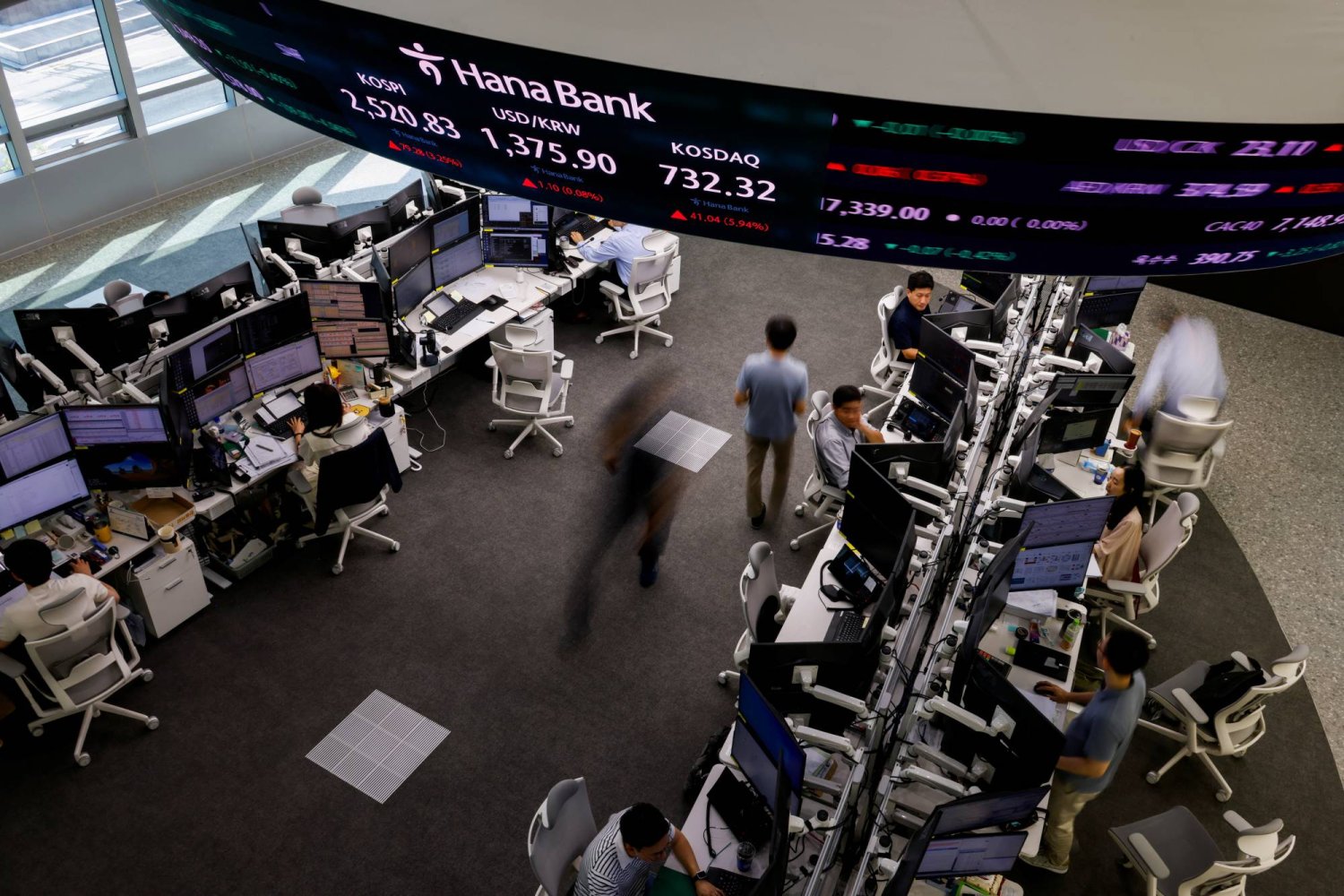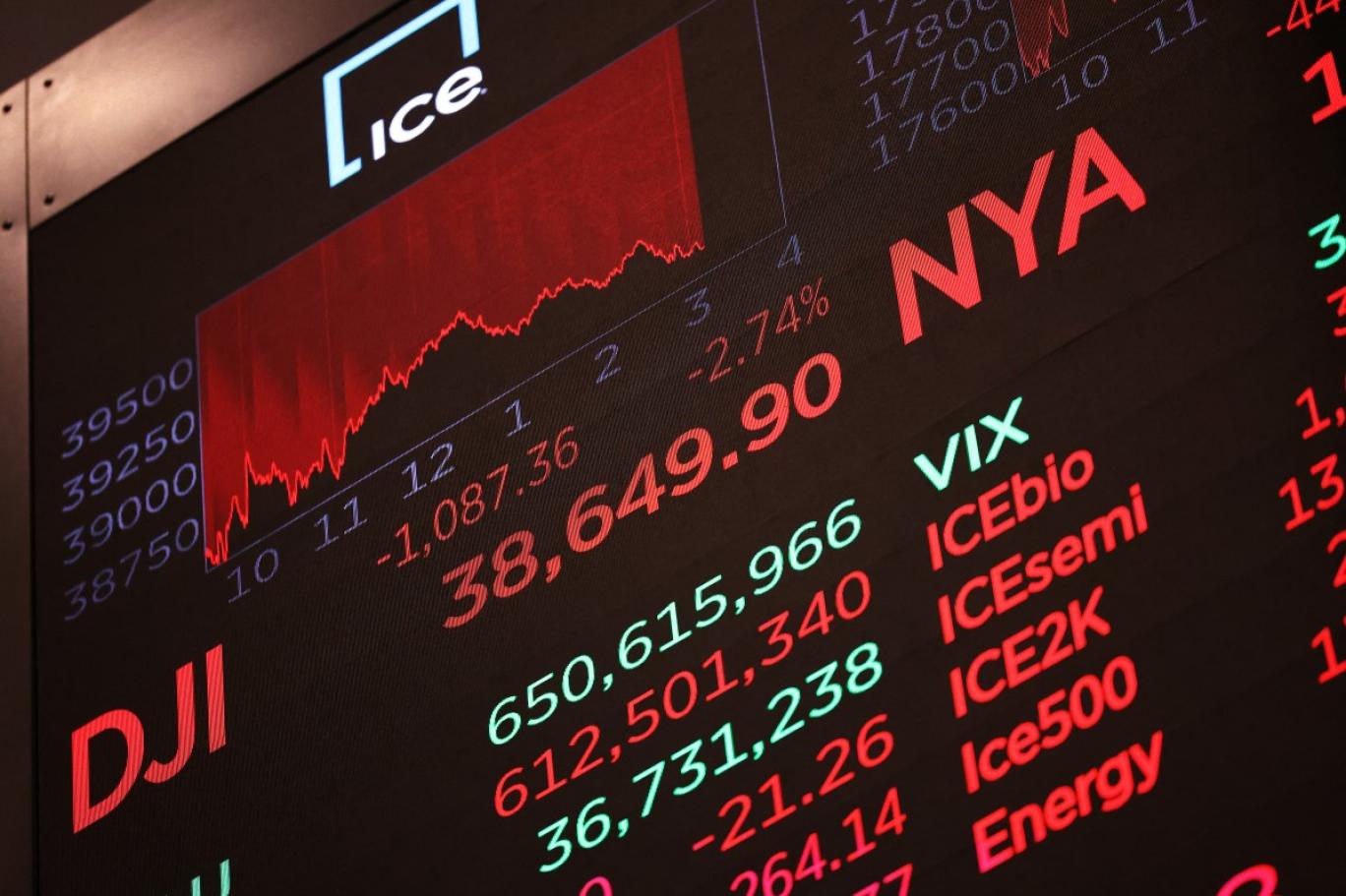The Great Depression Scenario: Global Impact of a U.S. Stock Market Collapse

“When a stone falls on Wall Street, the entire world hears the impact.”
Friday, August 2, 2024, was anything but ordinary inside the New York Stock Exchange, located on the famous Wall Street. In a massive sell-off, the world’s largest stock market by market capitalization saw U.S. stocks plummet dramatically.
The New York Stock Exchange, one of the oldest and largest in the world, plays a pivotal role in the global economy.
Significant Losses
On August 2, the New York Stock Exchange experienced significant losses across the consumer services, oil and natural gas, and industrial sectors. By the end of the trading day, the Dow Jones Industrial Average dropped by 1.51%, the S&P 500 by 1.84%, and the Nasdaq by 2.45%.
Intel Corporation, a leading American semiconductor manufacturer, saw its shares collapse by 28%, prompting the company to announce a major plan to lay off more than 15% of its workforce by the end of 2024. Consequently, the tech giant lost over $30 billion in market value.
The ripple effect of the New York Stock Exchange’s crash quickly spread, hitting Asian and European markets and eventually reaching the Arab markets.
This has raised several questions about the causes of the U.S. stock market collapse, the expected global consequences, especially in the Middle East and the Arab region, and the anticipated scenarios and concerns stemming from this downturn.
The crisis began with negative economic reports released by the U.S. Department of Labor. The report indicated that non-farm payrolls increased by 114,000 jobs in July 2024, a figure well below the average forecast of 175,000 jobs.
This report triggered significant anxiety, leading investors to pull their investments from the markets.

Causes of the Crash
The decline wasn’t triggered by a single factor. On August 6, CNN released a report outlining the reasons behind the New York Stock Exchange collapse.
The report highlighted how geopolitical tensions and the escalating conflict in the Middle East contributed to global market instability.
These factors ultimately led to the crash, as investors grew increasingly anxious about the Israeli aggression on Gaza, which further exacerbated the situation, along with the ongoing war in Ukraine.
Another contributing factor was the rise in U.S. unemployment, which reached 4.3% in July—the highest level since October 2021—raising fears of a potential recession in the American economy.
Additionally, Berkshire Hathaway’s partial sale of its Apple shares, led by Warren Buffett, was seen as a signal that Apple’s stock had peaked and should be sold.
CNN also pointed to the rapidly shifting political landscape in the U.S., where Democratic candidate Kamala Harris has nearly tied with Republican Donald Trump in several polls.
Trump seized the opportunity, launching sharp attacks on Vice President Kamala Harris. In a series of posts on X, Trump blamed Harris and the Democrats for the economic downturn, claiming that shareholders rejected her candidacy.
He posted saying that voters have a choice: Trump’s prosperity or Kamala’s collapse and the return of the Great Depression in 2024.
‘Global Tsunami’
The fallout from the U.S. stock market crash hit European financial markets hard on August 5, leading traders to label the day "Black Monday."
According to AFP, global markets lost approximately $6.4 trillion in value that day.
European stocks plummeted to their lowest levels in nearly six months amid a global sell-off driven by fears of slowing economic growth in the United States.
The major European stock exchanges saw the following declines: Paris 2.42%, London 1.95%, Frankfurt 2.49%, Amsterdam 3.05%, Milan 3.31%, Zurich 2.97%, and Madrid 2.79%.
The Stoxx Europe 600 index fell 2.68% to 484.45 points, after dipping to 482.42 points.
Bitcoin’s value dropped from around $62,000 to about $52,000.
From Europe to Asia, the impact also reached the Tokyo Stock Exchange, one of the largest in Asia and the world.
The Bank of Japan raised interest rates, increasing loan costs for Japanese investors who had borrowed to buy U.S. stocks, resulting in widespread selling to pay off loans.
As a result, Japan's Nikkei index plunged by 12% on August 5, marking its worst performance since 1987.

Arab Stock Markets
The global crisis quickly rippled through Arab markets, with most Arab stock exchanges declining by the close of trading on August 5.
Saudi Arabia’s stock exchange, the largest in the Arab world, saw its main index TASI (Tadawul All-Share Index) drop by 0.28% to 7,587 points, led by declines in key banking and basic materials stocks.
Egypt’s main index dropped 2.12%, driven by strong foreign institutional buying.
Al-Masah Capital, a Dubai-based financial advisory firm, reported that regional markets will be affected by the global negative performance, pushing regional indices towards sideways trading with a downward bias.
Qatar's stock exchange led the losses, with its main index falling 1.36% to 8,837 points. Nearly all sectors saw declines, including real estate (down 2.93%), industry (down 2.15%), and banking (down 1.1%).
Bahrain’s stock exchange declined for the second consecutive session, with its index dropping 0.78% to 1,344 points. Leading the losses were Ithmaar Holding (down 6.82%) and Khaleeji Commercial Bank (down 4.17%).
In the UAE, Dubai’s stock index fell 0.23% to 3,378 points, with Emaar Properties hitting its lowest level in over a year.
Abu Dhabi’s index also slipped, declining by 0.06% to 4,581 points, amid selling pressure on First Abu Dhabi Bank shares.
Jordan’s stock exchange deteriorated as well, dropping 0.16% to 2,203 points, with broad sectoral declines led by industry, which fell 0.49% due to drops in Jordan Steel and Universal Modern Industries stocks.

Control Room
Regarding the global impact of the U.S. stock market collapse, economist Ahmed Mohiuddin explained that "one major reason is that the United States is the world's largest economy, and Wall Street is essentially the control room of that economy. Therefore, when a stone falls on Wall Street, the entire world hears the impact."
“For example, in 2011, a movement was founded via social media called 'Occupy Wall Street,' aimed at attacking capitalist greed. The movement started with small street protests and evolved into a global protest involving 25 countries," Mohiuddin told Al-Estiklal.
“80 to 90 percent of global commodities are priced in dollars. Thus, when Wall Street shakes, the dollar fluctuates, affecting countries worldwide."
When asked about the potential for an economic recession, Mohiuddin expressed concerns about a severe recession in the U.S., which would have negative repercussions for both small and large economies worldwide.
Historically, the U.S. stock market has experienced several significant crashes. Notably, on October 24, 1929, known as "Black Thursday," the market crashed due to the sale of 13 million shares in one day with no buyers due to their devaluation.
In 1962, Wall Street suffered a sharp decline during President John F. Kennedy's administration, extending from December 1961 to June 1962.
Another severe crisis occurred on October 19, 1987, known as "Black Monday," which saw massive global financial losses, beginning with a sharp drop in Hong Kong and spreading to Europe and the U.S.
On October 6, 2008, the New York Stock Exchange collapsed as U.S. markets plunged due to the fallout from the mortgage crisis and looming recession, raising concerns about the global real estate market, with lingering effects still felt today.
Sources
- Black Monday: Sharp decline in European and Asian stock markets [Arabic]
- Stock markets rally after global rout
- Most Arab stock markets fall, following US markets [Arabic]
- Wall Street and global markets tumble over fears of US recession
- Black Monday: Financial market chaos wipes out trillions of dollars worldwide [Arabic]











